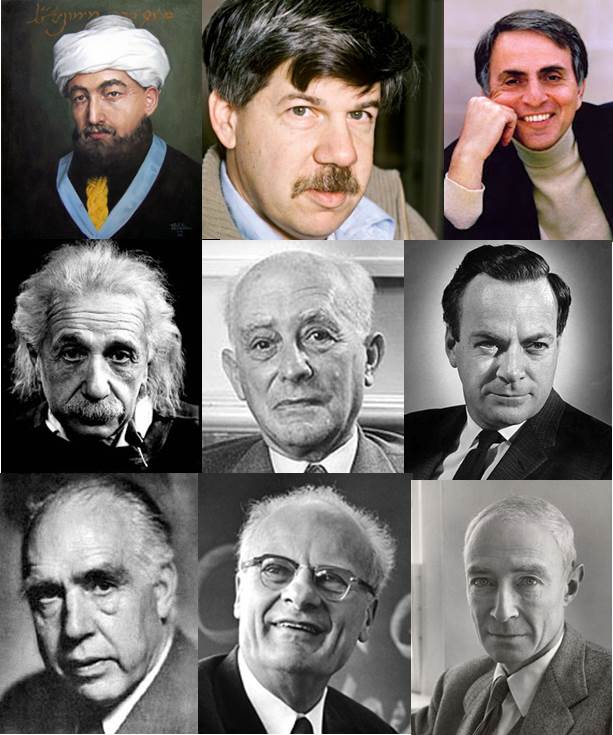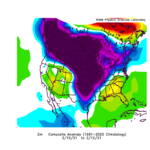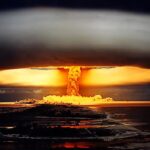This week marks the beginning of the Year 5774 in the Jewish calendar. When you have been counting that long you may know a thing or two about mathematics. But what about science and technology?
If there is any religion associated with those two subjects it is Judaism. The number of Jewish Nobel laureates is disproportionate to the tiny number who follow this faith. The question is why a tiny faith in numbers contributes so much to our understanding of the cosmos, physics, chemistry, genomics, mathematics, and medicine? Is scientific inquiry rooted in Judaism? Or is the phenomenon more about channeling because of discriminatory practices against Jews denied other fields by the overwhelming majority cultures and religions in which they cohabit, one example being Medieval Europe where Jews were denied the opportunity to till the soil, prohibited from joining guilds or apprenticing in trades. Did this result in Jews choosing fields of inquiry, turning inward to religion and outward to philosophy, medicine and science?
Probably the most renowned of these medieval Jews is Maimonides, the founding father of Jewish scientific inquiry. A 12th to 13th century physician, he was both a religious scholar and scientist. He set about the task of trying to reconcile his faith with scientific experimentation and observation. For Maimonides demonstrated science trumped literal interpretation of scripture. As a result he proposed to other Jews that scripture required reinterpretation anytime observed science contradicted it.
Maimonides was very religious. He believed in a theistic world but sought an answer to whether that world was a godly creation or natural. From his writings it appears this was never fully resolved but he imparted to those who followed him the mandate to seek out answers to universal scientific questions. In that tradition Jews have embraced learning and science as a social and moral imperative to this day.
The questions Maimonides posed back in the 12th century remain the ones Jews continue to wrestle with to this day in rationalizing their faith and science. Is our world governed by evolution or creation? How old is the Earth and the Universe? Does scripture point to the Big Bang? Are there limits to science where faith supersedes it? Are miracles real?
Maimonides would not have anticipated evolution and Jewish religious observers continue to be challenged by it because it diminishes the role of their god and creation. But just like Maimonides, Jewish scientists pursue evidence and experimentation in seeking observable answers.
One of my favourites in the field of evolutionary science is Stephen Jay Gould whose writings on natural history fill my bookshelves at home. He died in 2002 but his theory of punctuated equilibrium has refined Darwin’s initial findings, explaining rapid evolutionary change followed by long periods of species stability. His book Wonderful Life depicts the dawn of the Cambrian explosion when flora and fauna suddenly exploded into a variety of species whose descendants we see today here on Earth.
The pursuit of demonstrated science has proven to be challenging to the faith with so many born to Jewish parents choosing one over the other. Carl Sagan is one of these. A renowned astronomer, cosmologist and popularizer of science, his extensive writings in these fields have led to many religious Jews questioning whether he was an atheist. Sagan, whose parents were Reform Jews, often stated that he gained his scientific acumen from his mother’s inquiring mind. When he died in 1996 he left a legacy of scientific writing that stirred public imagination more than any scientist of his generation. His 13-part series on the U.S. public broadcasting network, Cosmos, probably did more for the field than any previous programs or books, becoming one of the most watched science programs in the history of broadcasting.
In one online physics forum the blogger asks the question “Why is it that a disproportionate amount of physicists are Jewish?” An interesting one to pose and not necessarily surprising since Albert Einstein made his contribution to our understanding of the field. Einstein’s theory of relativity has altered the science forever and our view of space, time and gravity. Add Jewish physicists Max Born, Richard Feynman, whose theoretical work helped to develop the field of quantum physics and mechanics. Consider Niels Bohr who unlocked the mysteries of the atom, or Hans Bethe, whose theories on nuclear reaction ultimately led to participation in the Manhattan Project. And last but not least Julius Robert Oppenheimer, the theoretical physicist who is credited with fathering the bomb and developing international controls over nuclear power after World War Two. You can check out even more at the website, Jewish Physicists. What is remarkable about this amazing list comes when you look at the footnotes and see how many of these scientists came from inter-faith marriages. And what also is remarkable about the list is how many of these scientists have come from areas where discrimination and antisemitism was rife, and how much the bigotry may have influenced these individuals. For many the world of science and technology may have proven to be an escape from the brutality of persecution.
Today Jews number about 14 million on the planet. That’s down from close to 17 million before the outbreak of World War Two. It is a small number when you consider the more than 7 billion on the planet. But in terms of science and technology, the contributions from those within the 14 million has been remarkable, both a testament of an inquiring faith that learned from Maimonides that literal interpretation of scripture in the face of scientific experimentation and observation should be challenged.
Seen below from top row from left: Maimonides, Stephen Jay Gould, Carl Sagan. In the middle row from left: Albert Einstein, Max Born, Richard Feynman. And in the bottom row from left: Niels Bohr, Hans Bethe, and J. Robert Oppenheimer.


















[…] https://www.21stcentech.com/religion-technology-science-21st-century-part-5-jews-deal-science-technol… […]